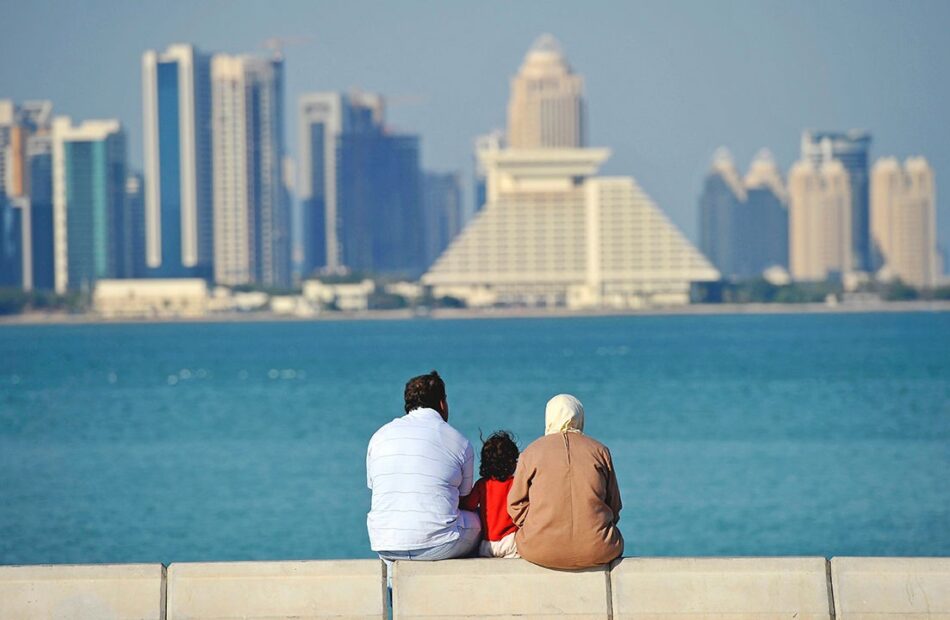Qatar wants to become a leader in genomics
Researchers at the Qatar Genome Programme, a project paid for by the former emir’s wife, say they want their Gulf state to become, in terms of genetics, “the Iceland of the Middle East”. For a thousand years, Icelanders have kept detailed records of how everyone is related to everyone else. These leafy family trees and the country’s genetic homogeneity helped Iceland become a pioneer in genomics. Qatar, a country with roughly the same population (excluding foreign residents), hopes to become a genetics powerhouse, too. Its neighbours are following suit. Listen to this story.Enjoy more audio and podcasts on iOS or Android.Your browser does not support the element.Save time by listening to our audio articles as you multitaskThe Qatar Genome Programme has already sequenced the genomes of nearly one in ten Qataris. It aims to sequence one in three by 2026. Saudi Arabia and the United Arab Emirates (uae) are expanding their schemes as well. The Human Genome Project first fully mapped human dna in 2003. Since then, scientists have sequenced around 1m genomes, refining humans’ genetic blueprint. But research has not been carried out evenly across the world. Most sequencing has been done on those of European descent. Far less than 1% of genomes sequenced are of Middle Easterners, though they make up around 5% of the world’s population. A test for cystic fibrosis based on genomes from Europeans may miss the disease in an Arab patient. Sequencing Arab genomes will enrich the world’s data.Over half of Qataris and Saudis marry their relatives. In the uae the share is nearly as high. Doing so keeps kinship webs tight and property within the family. Girls in conservative households may not be allowed to gallivant with boys outside of their family. Marrying a cousin is often a woman’s only chance of wedding someone she knows well. And even when a Qatari or Emirati marries outside his or her family, the pool of potential partners is small. Consanguinity causes a range of inherited disorders. Relatives are more likely to share genetic mutations, and if a child inherits two mutated versions of a gene (one from each parent), he or she may suffer from a disease. Some genetic diseases are so common in the region that doctors associate them with a particular tribe or family.Couples who wish to wed in Qatar, Kuwait and Saudi Arabia must first get tested for mutations linked to a handful of inherited diseases such as thalassaemia, a blood disorder. Those with risky results may choose not to marry, or have in vitro fertilisation with unaffected embryos (paid for by the government). Sequencing the genomes of Gulf Arabs should make people healthier. Knowing patients’ genetic sequences may one day help their doctors pick the best drugs and doses for them. And having a better picture of the region’s genetic landscape may lead to fuller and more relevant premarital genetic testing. Today Qatar requires soon-to-be-wed couples to test for only a few diseases. But within the next two years, scientists in the country hope to roll out an affordable test that screens for hundreds. Saudi Arabia plans to expand its testing, too. Those outside the region will also benefit from the research. A consanguineous population “is like an actual human experiment”, says one geneticist in the uae. Some rare diseases are found only in places where cousin marriage is common. Discovering rare diseases and mutations does more than just help those suffering from them. Such findings help scientists piece together how genes correlate with health outcomes. Cousin marriage is common elsewhere, in places such as Sudan. But few consanguineous countries outside the Arab Gulf have the spare cash to sequence genomes en masse. Better understanding of the region’s genomes may allow cousin marriage everywhere to become a bit safer. This article appeared in the Middle East & Africa section of the print edition under the headline “Marriage markers”From the May 28th 2022 editionDiscover stories from this section and more in the list of contents Explore the edition

